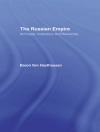From the New York Times best-selling historian comes a gripping account of the crisis of the Weimar Republic, when hyperinflation and political upheaval threatened to unravel a new experiment in democracy.
As the great Austrian writer Stefan Zweig confided in his autobiography, written in exile, “I have a pretty thorough knowledge of history, but never, to my recollection, has it produced such madness in such gigantic proportions.” He was referring to the situation in Germany in 1923. It was a “year of lunacy, ” defined by hyperinflation, a political system on the verge of collapse, and separatist movements that threatened Germany’s territorial integrity. Most significantly, Adolf Hitler launched his infamous Beer Hall Putsch in Munich—a failed coup that nonetheless drew international attention and demonstrated the Nazis’ ruthless determination to seize power.
In Germany 1923, award-winning historian Volker Ullrich draws on letters, memoirs, newspaper articles, and other sources from the time to present a captivating new history of those explosive twelve months. The crisis began when the French invaded the Ruhr Valley in January to force Germany to pay the reparations it owed under the Treaty of Versailles, which had ended the Great War. For years, German leaders had embraced inflationary policies to finance the costs of defeat, and, as Ullrich demonstrates, the invasion utterly destroyed the value of the German mark. Before the war, the exchange rate was 4.2 marks to the dollar. By November 20, 1923, a dollar was worth an incomprehensible 4.2 trillion marks, and a loaf of bread cost 200 billion. Facing the abyss, many ordinary Germans called for a national messiah. Among the figures to vie for that role was Hitler, a thirty-four-year-old veteran who possessed a uniquely malevolent personal magnetism. Although the Nazi coup in November was put down and Hitler arrested, the putsch showed just how tenuous the first German democracy, the Weimar Republic, was at its core.
As Ullrich’s panoramic narrative reveals, other Germans responded to the successive crises by launching a cultural revolution: 1923 witnessed the emergence of a multitude of new movements, from Dada to Bauhaus, and of such iconoclasts as Bertolt Brecht, George Grosz, and Franz Kafka. Yet most observers were amazed that the Weimar Republic was able to survive, and the more astute realized that the feral undercurrents unleashed could lead to much worse. Publishing a century after that fateful year,Germany 1923 is a riveting chronicle of one of the most challenging times any modern democracy has faced, one with haunting parallels to our own political moment.
Giới thiệu về tác giả
Jefferson Chase has translated works by Thomas Mann and Wolfgang Schivelbusch, among others. He lives in Berlin.












